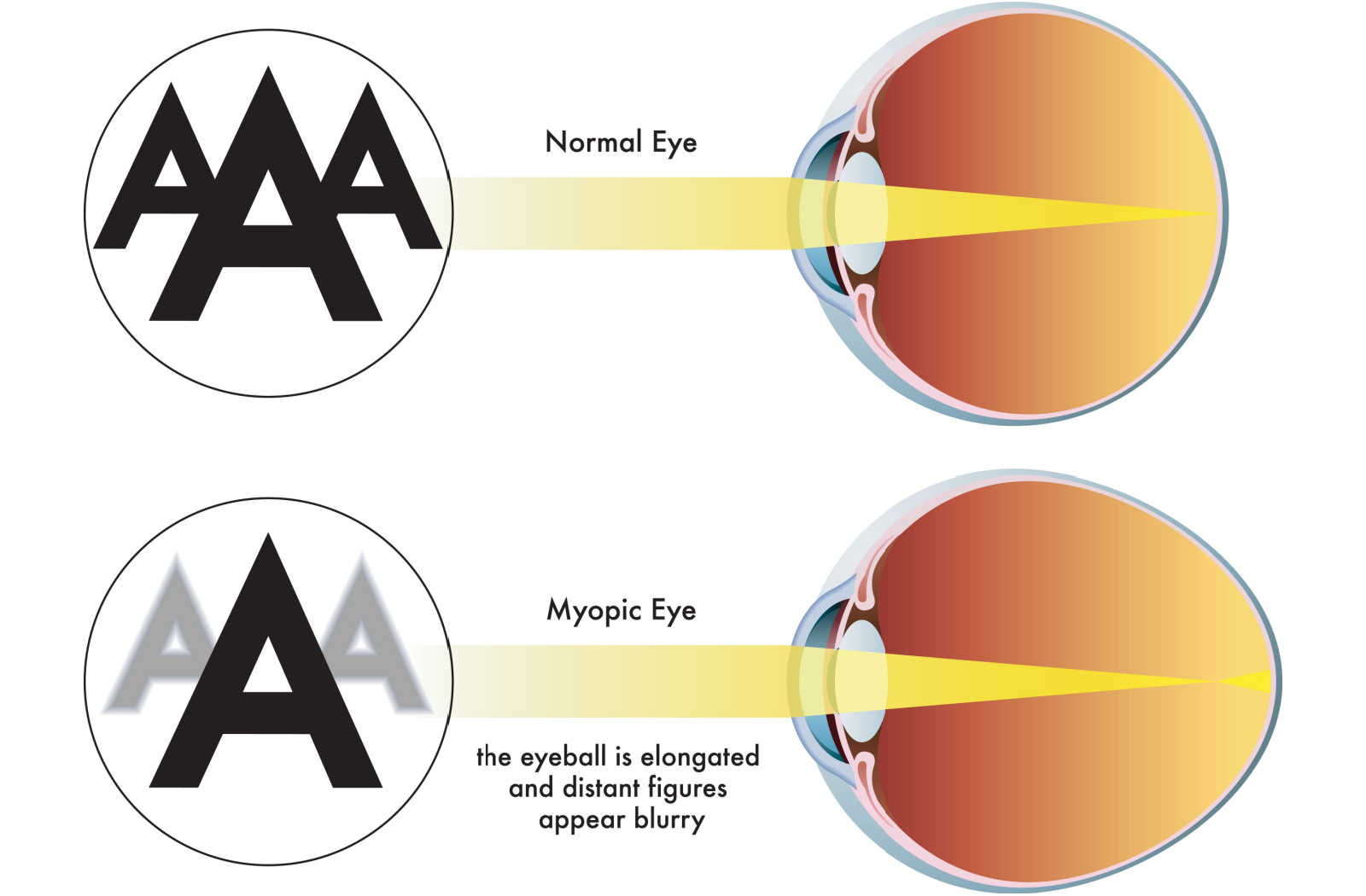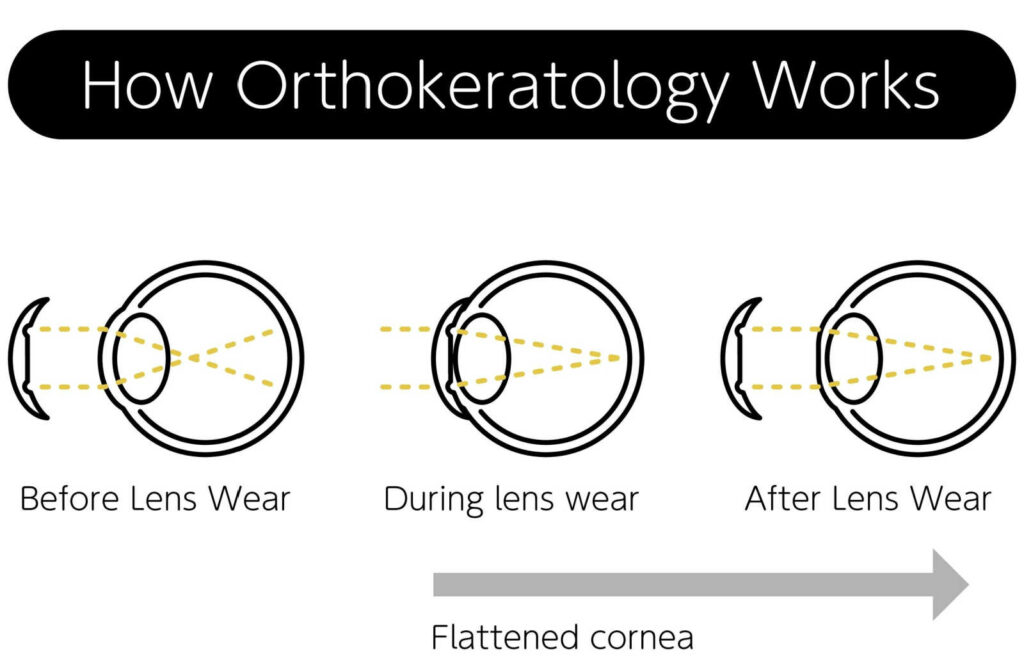If you have myopia, or nearsightedness, there’s another way to manage your vision. Myopia is widespread, and wearing glasses or daytime contact lenses isn’t for everyone. Orthokeratology can help reduce your reliance on daytime corrective lenses.
Orthokeratology, or ortho-k, can improve your vision and slow myopia progression with specialty contact lenses you wear overnight to change your cornea’s shape and reduce myopia’s effects during the day.
At Specialty Eye, we’re dedicated to changing the lives of our patients with advanced solutions for myopia management that can benefit both children and adults. We can help you learn about your options for myopia management and how ortho-k can benefit your vision.
What Is Orthokeratology?
Orthokeratology is a unique treatment method that can correct patients’ vision non-invasively and provide clear vision without glasses or daytime contact lenses.
Both adults and children can use Orthokeratology successfully. It involves wearing specialized contact lenses overnight. When you wake up, you can remove the lenses and enjoy clear vision throughout the day.
Orthokeratology has been around for many years, and it’s gone by many different names, including corneal refractive therapy (CRT), vision shaping treatment, sleep shaping treatment, and KIDS lenses. When we’re treating patients with orthokeratology at Specialty Eye, we use these specialized lenses differently for adults and children.
How Does Orthokeratology Work?
Ortho-k relies on uniquely designed contact lenses that can mold the curvature of the cornea, the clear, front surface of your eye. The lenses are worn at night to gently mold the shape of your cornea while still allowing oxygen to reach your eye, keeping your eyes healthy. Altering your cornea’s shape can help your eyes focus light properly, resulting in clear vision throughout the day without the need for other forms of vision support.
Orthokeratology lenses must be worn every night or on a prescribed wear schedule set by your doctor at Specialty Eye. At the start of your treatment, you may need glasses or contacts near the end of your day, but our goal is to help our patients go all day without supplemental vision correction.
When correcting our adult patients’ vision, we use a specialized approach to maximize the clarity of a patient’s vision throughout the day by focusing on providing treatment solutions that can correct vision at night. It can take a few weeks to optimize your vision correction, but many patients can ultimately achieve 20/40 vision with the support of ortho-k lenses.

Slowing Myopia Progression
One of the chief advantages of orthokeratology is its benefits for slowing the progression of nearsightedness, also known as myopia.
Over the last couple decades, eye doctors have realized orthokeratology has the distinct benefit of slowing down the progression of nearsightedness in children. Altering the shape of the eye can help light focus on the retina in such a way that it slows the elongating of the eyeball that leads to myopia.
Studies have shown using orthokeratology can slow the progression of nearsightedness and provide vision and refraction improvements that measure between 50% and 70%. At Specialty Eye, we have seen success with hundreds of children at our practice.
Our doctors are specialized in designing lenses that maximize the benefits of orthokeratology. We utilize a lens called the KIDS lens for the children we see. The KIDS lens is uniquely designed for each patient to amplify the effect of flattening the cornea and help slow down the elongation of your child’s eyes.
How Should You Care for Your Eyes When You Wear Ortho-K Lenses?
The doctors at Specialty Eye have received specialized training to fit your eyes with orthokeratology lenses. We can teach you proper practices for contact lens sterilization and care throughout your fitting and trial of orthokeratology lenses.
It’s important to remember contact lens wearers may be at an increased risk of eye infections, so you must care for your lenses and your eyes properly. Some basic contact lens rules to keep your eyes safe include:
- Wash your hands before touching your eyes and contact lenses
- Keep water away from your lenses
- Don’t reuse contact solution
- Replace your contact lens case at least every 3 months
- Keep your contact lens case clean
Our staff at Specialty Eye can answer your questions and give you detailed instructions on handling your orthokeratology lenses and maintaining your eye health.
Correct Myopia with Orthokeratology at Specialty Eye in Washington
If you’re looking for a new way to manage myopia for you or your child, orthokeratology can help by reducing the need for glasses or daytime contacts, as well as slowing down progression of the condition. Contact our team at Specialty Eye to learn how your daily life can improve with the benefits of orthokeratology.




